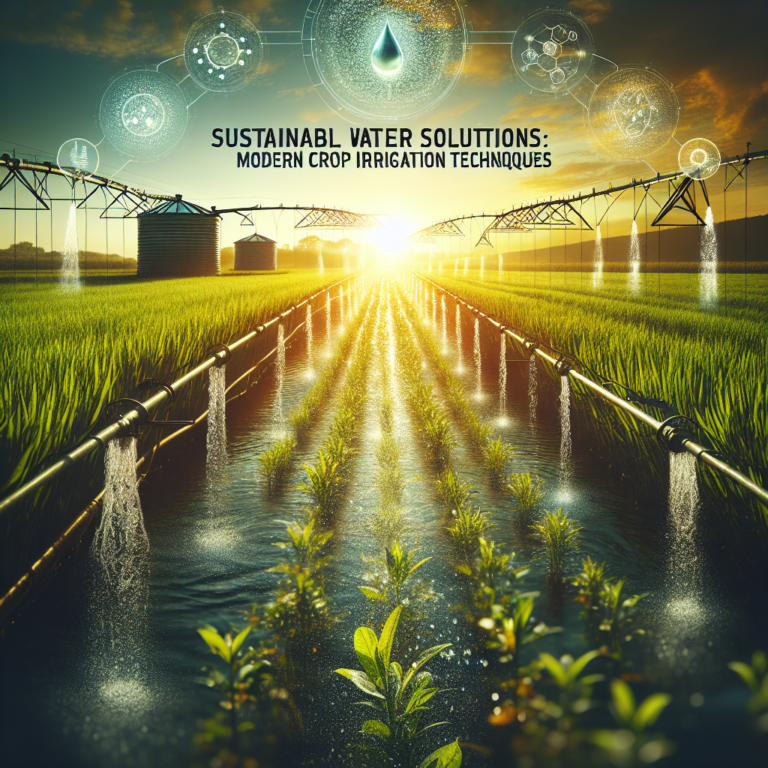Water is a precious resource that is essential for crop growth and agriculture. With increasing global temperatures and changing weather patterns, the availability of fresh water is becoming more scarce. This has put pressure on farmers and agricultural practices to find sustainable solutions for water conservation and efficient irrigation techniques.
Modern crop irrigation techniques are designed to maximize water usage and minimize waste. One approach is the use of drip irrigation, which delivers water directly to the roots of plants through a system of tubes and emitters. This method reduces water evaporation and runoff, leading to significant water savings compared to traditional surface irrigation methods.
Another sustainable water solution is the use of precision agriculture techniques, such as soil moisture sensors and weather data analytics. These tools can help farmers monitor and adjust water usage based on real-time data, ensuring that crops receive the right amount of water at the right time. This not only conserves water but also improves crop yields and quality.
Conservation tillage practices, such as no-till or minimum tillage, can also help conserve water by reducing soil erosion and improving water retention in the soil. By keeping the soil covered with crop residue, water infiltration and storage capacity can be increased, reducing the need for frequent irrigation.
In addition to these techniques, agroforestry and crop rotation systems can also play a role in sustainable water management. Planting trees and shrubs alongside crops can help create microclimates that retain moisture and provide shade, reducing water evaporation and increasing soil moisture. Crop rotation can help break pest cycles and improve soil health, leading to more resilient and water-efficient farming practices.
Overall, sustainable water solutions in agriculture are essential for the future of food production and environmental stewardship. By implementing modern crop irrigation techniques, farmers can reduce water waste, improve crop productivity, and contribute to a more sustainable and resilient agricultural system. By investing in these practices, we can ensure a secure and abundant food supply for generations to come.
